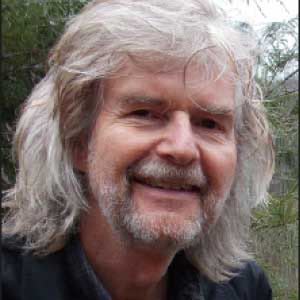Participants at the diocese’s annual Outreach and Advocacy Conference heard a powerful call to work for equity in the Church and society, and grappled with ways to bring it about. The conference, held on Nov. 4 at St. John, York Mills, drew 100 people from across the diocese and marked the first time that the event focused on racial and ethnic diversity.
Keynote speaker Dr. Carl James, the Jean Augustine Chair in Education at York University, spelled out the difference between equity and equality, and highlighted how inequality is built on racism. “We don’t want equality of opportunity because that means treating everyone the same,” he said. “What we want is equity, which takes everyone’s situation into account and is based on justice.”
Canadians are proud of their country as a multicultural oasis, a colour-blind society, said Dr. James. Yet while most people don’t like talking about it, race is a core reality of life in Canada, he noted. “Whiteness is taken for granted,” he said, and we need to think about how whiteness, which we see as “normal,” is impacting our lives. “If we think that the best priest is a white priest, then we are using whiteness,” he said.
Diversity is an ongoing challenge, and we need to think about diversity in all we do. “The work we have to do is bring people to a consciousness that we’re all in this together,” said. We need to constantly think about what offends people from other backgrounds, which is not always easy. “We have to become comfortable with uncomfortability,” he added.
A lively question period followed his address. Bishop Peter Fenty, the area bishop
of York-Simcoe, asked how we can respond to racist comments, and asked, “How do we confront the fact that systemic racism is real?”
The Rev. Canon Don Butler, incumbent of Trinity, Barrie, said that when he strolls along Barrie’s waterfront at night, people steer clear of him as a tall black man. When he did the internment service for a local resident, people were shocked to see a black priest. He appealed to the audience to have courage to confront racism, “to be mindful of who we are called to be as people of God.”
Workshops explored issues of accessibility, understanding privilege, confronting racism, Indigenous issues, youth and social justice, and climate change. Brother Reginald Crenshaw, OHC, an associate at St. Paul, Rexdale, led a workshop on dismantling racism in the parish. It defined racism as racial bias combined with the misuses of structures and institutions, so that one group’s racial bias is institutionalized by its power, based on its perceived racial superiority. The workshops contrasted personal and systemic racism, with the latter, like the water in which a fish swims, being so pervasive that is not perceived easily. Everyone is borne into it and socialized to play well-defined roles.
The Rev. Gary van der Meer, incumbent at St. Anne, Toronto, provided a practical example of interfaith inclusion in action during a workshop he led with Imam Ilyas Ally. The workshop focused on the growing friendship between St. Anne’s and Imam Ally’s Muslim community. It has included interfaith learning events and joint sponsorship of a refugee family.
Mike Walker, a student completing a doctorate on a theology of disability, told a workshop on accessibility and solidarity that “ableism is a sin” (ableism is discrimination in favour of able-bodied people). He has cerebral palsy, and after noting that people with disabilities are sometime labeled as a “retard”, or a “cripple”, he said, “I’d rather have names like friend or brother,” his voice cracking with emotion.
Participants explored the notion of “sacramental solidarity” and how baptism and Holy Communion can lead all people into Jesus’ embrace. They agreed with a suggestion that the Church develop official programs to educate parishes on disability issues, just as it does on sexual misconduct concerns.
Karri Munn-Venn of Citizens for Public Justice led a climate change workshop in which participants highlighted the people and places most immediately impacted by climate change: people of colour, former colonies, and communities that have contributed little to the problem. A discussion outlined the inconsistencies in Canada’s approach to climate change, including tensions between respect for Indigenous rights and pipeline approval, and between the Paris Agreement and ongoing fossil fuel subsidies. The workshop wrapped up with an impassioned call to minimize our environmental impacts, engage church leaders on the Christian imperative to care for the Earth, and to demand action from the federal government.
Parishes were invited to take part in CPJ’s Give it up for the Earth! Campaign, which invites individuals to commit to reducing greenhouse gas emissions, while urging the federal government to increase climate action. For more information, visit: cpj.ca/for-the-earth.








Who will we be on that day?